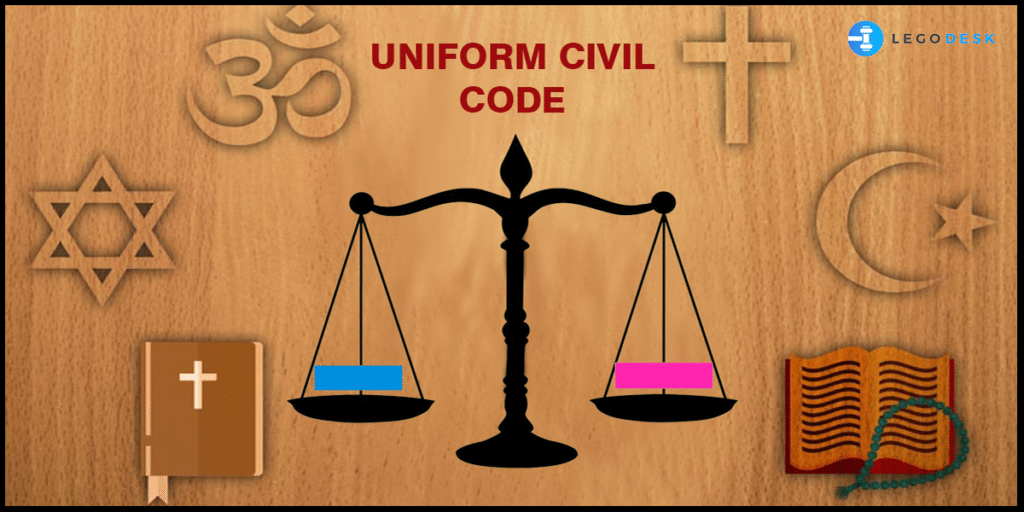
📰 Introduction
The Uniform Civil Code (UCC) has once again returned to the center of India’s national debate, with Prime Minister Narendra Modi recently expressing strong support for its implementation. As the discussion reignites, people across the country are asking: What is the UCC? Why is it controversial? And how will it affect India’s legal and social fabric?
This article explains the UCC in simple terms, explores both sides of the debate, and offers the latest updates on this crucial legal reform.
📜 What is the Uniform Civil Code (UCC)?
The Uniform Civil Code is a proposal to replace personal laws based on religious scriptures and customs with a common set of laws governing personal matters such as:
- Marriage
- Divorce
- Inheritance
- Adoption
- Succession
Today in India, different communities follow different personal laws. For example:
- Hindus follow the Hindu Marriage Act, Hindu Succession Act, etc.
- Muslims follow Sharia-based personal law
- Christians and Parsis have their own separate laws
The UCC aims to bring all citizens under one unified civil law, regardless of religion, caste, or gender.
📍 Why is UCC in the News Again?
On July 3, 2025, PM Modi reiterated his government’s commitment to implementing the UCC nationwide. This followed a Law Commission report that recommended public consultations and expert discussions to create a framework for uniform civil laws.
Several BJP-ruled states like Uttarakhand and Gujarat have already begun preparing for UCC implementation at the state level.
⚖️ Arguments in Favor of UCC
✅ 1. Equality Before Law
Supporters argue that UCC will ensure equality for all citizens, particularly for women, who often face discrimination under personal laws (e.g., unequal inheritance, polygamy).
✅ 2. National Integration
A single civil code can help promote unity and reduce communal divisions, moving India closer to the ideal of secularism.
✅ 3. Constitutional Mandate
Article 44 of the Indian Constitution states that “The State shall endeavor to secure for the citizens a Uniform Civil Code throughout the territory of India.”
✅ 4. Judicial Backing
The Supreme Court has, in several landmark judgments, called for the implementation of UCC, highlighting inconsistencies in personal laws.
❌ Arguments Against UCC
❌ 1. Threat to Religious Freedom
Opponents argue that UCC could violate Article 25, which guarantees freedom of religion. Many communities see personal laws as an extension of their faith.
❌ 2. Lack of Consensus
Minority groups, particularly Muslims and Christians, feel excluded from the consultation process and fear majoritarian bias in framing the code.
❌ 3. Social Sensitivity
India is a pluralistic society, and critics warn that sudden enforcement of UCC could lead to social unrest, especially if not handled inclusively.
❌ 4. Existing Reforms Work
Some argue that gradual reform of personal laws (like the 2005 Hindu Succession Amendment or Supreme Court’s Shayara Bano verdict on Triple Talaq) is a better approach.
📊 What Does the Public Think?
According to a recent India Today survey:
- 62% of urban respondents support UCC
- 29% oppose it, citing religious concerns
- 9% are unsure
However, the response is more mixed in rural and minority communities. Education and awareness levels heavily influence perceptions.
🧠 Expert Opinions
“India needs a UCC, but it must be consultative, not coercive. Law should unite, not divide.”
— Justice A.K. Sikri (Retd)
“Women across all communities suffer under patriarchal personal laws. A gender-just UCC is the need of the hour.”
— Flavia Agnes, Women’s Rights Activist & Lawyer
🛠️ Current Developments
- Uttarakhand may become the first state to implement UCC after a draft bill was tabled in its assembly.
- The Central Law Commission is currently holding consultations with religious scholars, women’s groups, and civil society.
- A model UCC draft is expected to be released before the Winter Session 2025 in Parliament.
🧩 What’s Next?
India may move toward a phased rollout, starting with:
- Uniform laws for marriage registration
- Equal property rights for all genders
- Standardized divorce and custody rules
The implementation process could span several years, involving legal reform, public outreach, and constitutional safeguards.
🧭 Conclusion
The Uniform Civil Code is one of the most complex and sensitive reforms in India’s legal history. It promises equality and unity, but also risks alienating communities if implemented without adequate consensus. The key lies in inclusive dialogue, safeguarding minority rights, and upholding constitutional values.
As the UCC debate heats up, it’s clear that India stands at a critical crossroads—balancing modern law with traditional identities in a diverse democracy.

